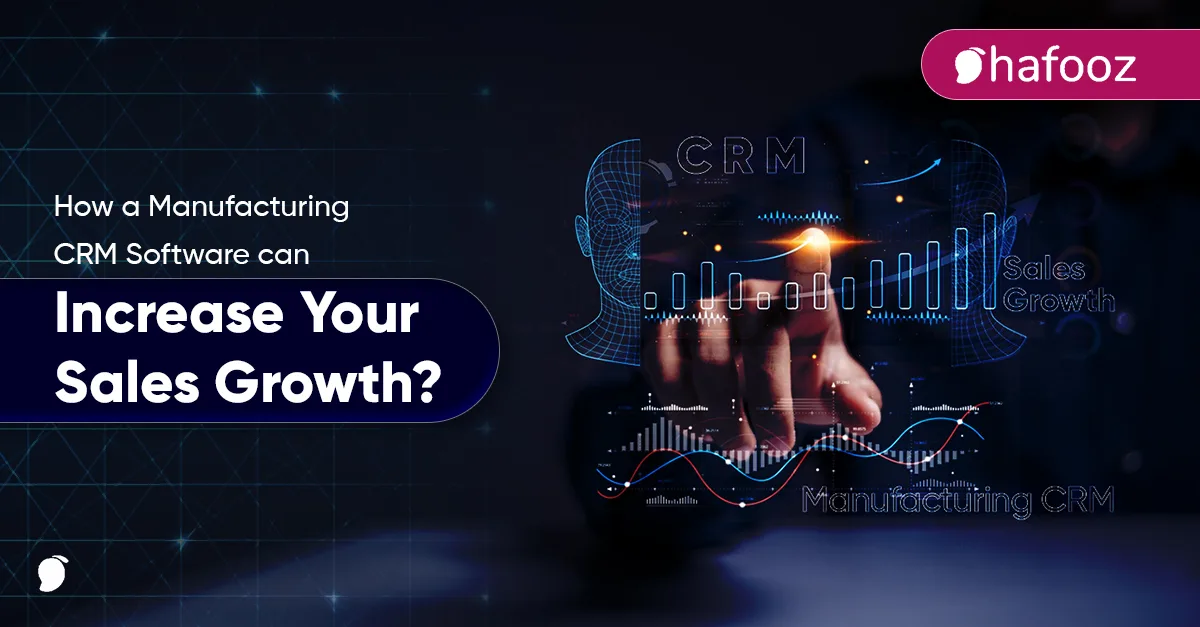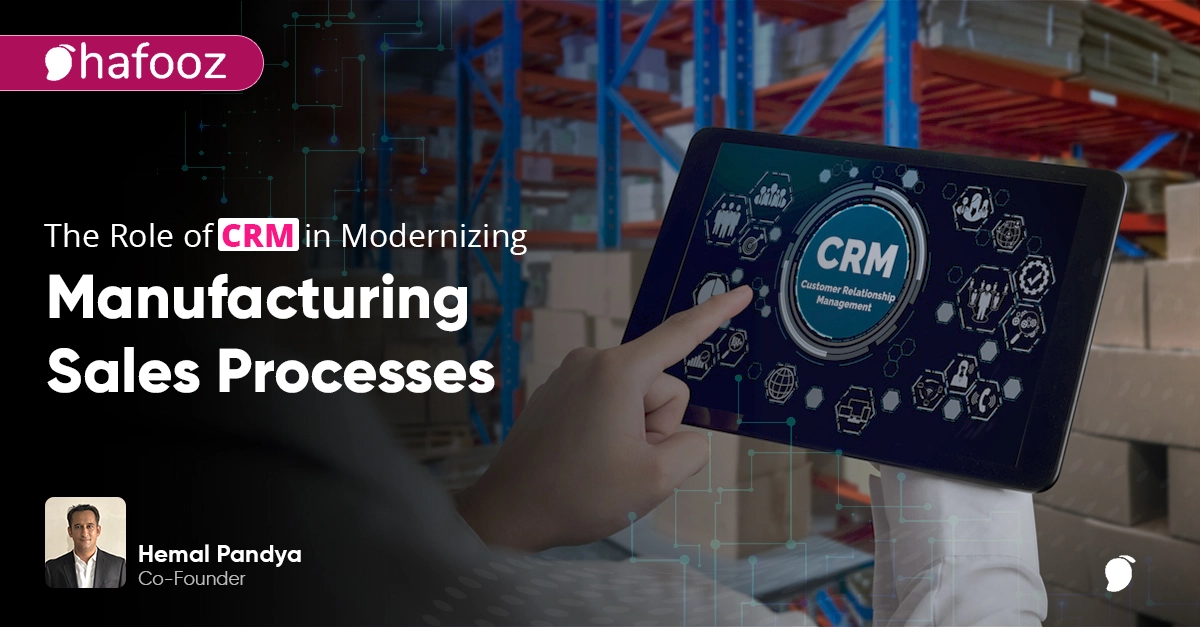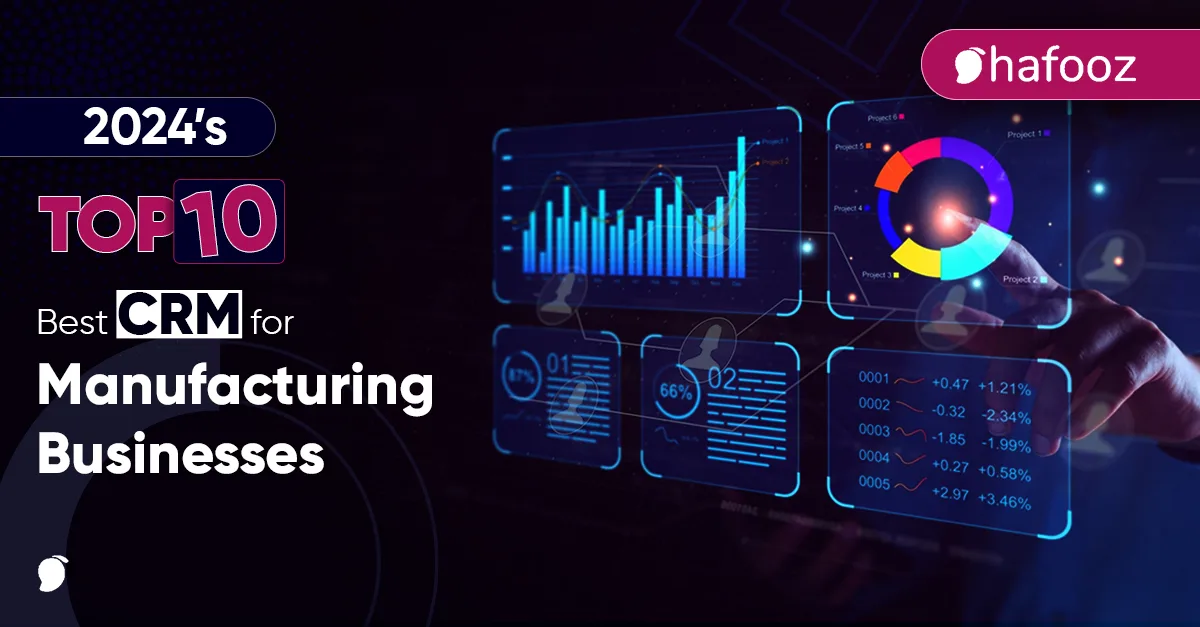Struggling to grow sales in your business? Does tracking leads, closing deals on time, or building customer relationships make you feel like a hard nut to crack?
Disconnected customer relationships and a slow-moving sales pipeline can be frustrating. Many manufacturers face these challenges.
But what if there was a way to overcome this stagnant sales pipeline? Invest in manufacturing CRM software and take your sales game to the next level.
Dig into this blog to boost your sales strategy.
What's on this page:
Why Conventional Sales Techniques are Ineffective?
Many people are familiar with conventional sales tactics used by pushy salespeople. However, today’s buyers know what they want and are thorough with their research.
Thus, it poses a threat if you don’t evolve with the changing times. But first, let’s understand why traditional sales techniques fall short of the ever-growing sales requirements.
- Reliability on Manual Processes and Core Memory
Most small and medium-sized manufacturing companies rely on manual efforts and siloed data. This slows down the sales pipeline and increases the risk of revenue loss.
Spreadsheets, sticky notes, and core memory worked well in the past and sufficed for smaller operations, but they become unreliable as the manufacturer grows. Today’s scaling manufacturers need reliable systems that are not cumbersome and error-prone.
- Less or No Visibility
Managing a sales team can feel like a never-ending hunt without clear visibility. Uncertainty about leads or customers is a constant source of stress with traditional sales methods.
Imagine a sales executive juggling between spreadsheets, emails, or handwritten notes. This results in a waste of time and delays. Plus, the Sales Heads or Directors can’t see what’s happening.
- Customer Relationship
The manufacturing industry has always been competitive; however, connecting with customers has evolved with the evolving manufacturing industry.
Manufacturers and customers still attend conferences and exhibitions to network, stay updated, and find ways to generate more leads. However, customers today keep themselves informed more than ever before.
Customers also expect personalized and consistent communication. Therefore, regardless of your business size, businesses need to be responsive and constantly in touch with their customers 24/7 to build trust and foster long-term relationships.
- Disintegrated Communication
In many manufacturing companies, sales and other departments merely communicate because the information flow is not always optimized.
Even though communication between departments exists, there is a lack of a central platform for sharing information such as product specifications, pricing, or delivery timelines.
Thus, a disintegrated communication system leads to delays and missed opportunities.
- Limited Customer Insights
Understanding customers’ needs is crucial for closing deals. Traditional sales channels make it challenging to stay in constant touch, personalize according to their needs and understand their preferences.
Therefore, proper customer insights are the key to increasing sales productivity and building strong and lasting customer relationships. This can be achieved by understanding customer behavior and buying journeys and analyzing customer data.
- Poor Workflow
Sales representatives are often caught up with repetitive tasks such as data entry, follow-up emails, tracking orders, or filling up spreadsheets.
Reliability on manual order processing and chasing approvals through endless phone calls leads to missed deadlines, frustrated customers, and increased risk of errors.
Therefore, CRM software for the manufacturing industry is needed to grow sales, generate more leads, and unclog the clogged pipeline. CRM automates repetitive tasks, allowing sales executives to focus on other tasks, such as building customer relationships.
A Manufacturing CRM Can Streamline Your Sales Pipeline
If your sales team spends more time on paperwork than closing deals, you’re paying for paperwork, not for closing deals. We know you want it to change and here’s where a manufacturing CRM tool comes in.
So, here are five compelling reasons you should invest in CRM software for the manufacturing industry.
1. Streamline Your Sales Pipeline
An effective sales pipeline is not just about closing deals. It is about identifying the inefficiencies and bottlenecks that slow the sales process. Your sales team can focus on other crucial tasks if a CRM identifies and replaces unnecessary and repetitive tasks.
Therefore, streamlining the sales pipeline means your sales team has more time to capture more leads, adapt to market change, and nurture potential customers.
Come out of your messy sales pipeline with:
-
- Web forms and Chatbots: You can easily capture leads from all digital marketing channels into a centralized platform that ensures you lose no potential customers.
- Nurture Leads: You can guide your customers through the buying journey by nurturing leads with tailored messaging.
- Lead Communication History: Your sales team can comprehensively understand every customer engagement and preference with lead communication history.
- Role-based Access: Keep your data safe and secure to ensure its confidentiality and integrity.
- Visit Tracking: Easily track your sales executives’ location and optimize their trips.
Example:
One of your potential customers inquires about your specific service or product.
Without a CRM, all related customer data might get buried in your inbox or lost on a spreadsheet. Thus, your sales team fail to follow up promptly.
However, the team can track communication history with a manufacturing CRM as the inquiry gets logged to the right person. Moreover, it is accessible to the entire team and moves the information through the pipeline faster.
2. CRM Helps Enhance Your Customer Interactions
Customers are the key to increasing sales productivity for any business. A recent study states that 59% of customers consider tailored engagement an important factor in gaining attention.
- Stronger customer relationships build trust and loyalty.
- Better communication helps address customer issues quickly and effectively.
- Moreover, happy customers are more likely to come back.
Here’s how you can use a manufacturing CRM to gain happy customers:
- 360-degree Customer View: A manufacturing CRM provides a 360-degree view of your customers. This holistic view lets you understand their behaviors, preferences, and needs.
- Measure Customer Satisfaction: You can measure and track how satisfied your customers are with your products or services.
- Comprehensive Activity Tracking: You can record every touch point with your customers from initial contact to post-sales support. Moreover, you can effortlessly monitor their needs and requirements.
- Revenue Bot: Engage with customers in real-time with chatbots like Revenue Bot.
For example,
A customer who regularly orders a specific machine part encounters a quality issue. Without a CRM, the customer might feel frustrated and unclear about how to process.
The customer constantly tries to reach out via emails or calls, but your service team cannot handle the situation because of scattered order history and past communications.
However, with CRM, the customer can use your 24/7 chatbot services. Moreover, your sales team can comprehensively view their history, providing them with suitable solutions.
3. You Can Make Data-Driven Decisions
Data is powerful and important for every manufacturing business. Data can help you stay ahead of the curve, identify bottlenecks, and predict future demands.
Did you know? 42% of marketing decision-makers in a January 2023 global survey ranked purchase history as the most important data type to improve business outcomes.
CRM software plays a crucial role in making data-driven decisions by providing a centralized hub for customer information, generating digital reports, and much more.
Here’s how you can stop guessing and start making data-driven decisions:
- Reporting and Analytics: Learn about the volume, revenue, and efficiency of order fulfillment. With this feature, you can identify trends, make informed decisions, and boost sales strategies.
- Integrated Order Management: You can integrate customer data with CRM. This will provide you with a seamless flow of customer information.
- A Holistic View: Get a comprehensive view of each customer’s interactions, order histories, preferences, and more.
For example,
You notice a trend in your CRM data with a spike in inquiries for a specific product.
Without a CRM, you might miss the trend. And if you do notice, your sales team will have to manually analyze sales reports and customer emails. You might even miss the opportunity.
However, a manufacturing CRM can highlight the trends in customer inquiries automatically.
4. CRM can Integrate with Other Systems
To operate in a unified and less complex ecosystem, you must integrate with other systems. With a CRM you can say goodbye to silos and improve collaboration in your sales, logistics, marketing, and other teams.
A CRM can be integrated into many other systems, such as sales systems, for a seamless flow of sales data, a customer support system for prompt customer support responses, and more.
Here’s how you can connect your systems for a better workflow:
- Manage and Organize Documents: By integrating your CRM with a mobile CRM, you can store and capture documents post- and pre-customer visits on your mobile devices.
- Effortless Data Management: Seamlessly integrate your existing CRM or marketing automation tools with Web Forms. Manufacturing sales lead management empowers you to manage and analyze the data collected effortlessly, enhancing your productivity.
- Publish Anywhere: You can integrate Web Forms into your websites, landing pages, or shareable links. You can effortlessly share them using email campaigns, social media, and other online platforms.
For example,
A salesperson on the go closes a huge deal.
Traditionally, without a CRM, the sales rep would get back to the office and manually enter order details into spreadsheets. This is time-consuming and prone to errors. The sales executive might even forget minor details.
However, a manufacturing CRM allows the sales representatives to enter order details on the go with mobile CRM features.
5. A CRM Provides Beyond-Sales Benefits
A manufacturing CRM tailored to your specific manufacturing needs offers a wider range of benefits than just boosting your sales pipeline.
Beyond sales, a manufacturing CRM offers you the ability to:
- Operate More Efficiently: Using a meeting scheduler integrated with your calendar, customers can book open slots based on your availability. Set reminders for sales representatives so that they do not miss any important customer visits.
- Make Smart Decisions: Your sales representative can access and update real-time data on a mobile CRM.
- Reduce Costs and Save Time: With effortless data collection, and efficient team collaboration, you can save time and increase overall revenue.
There are many benefits that a CRM offers. It helps your business grow and gain a competitive edge in manufacturing. A custom-made manufacturing CRM can transform your business into a well-oiled machine.
Conclusion
By investing in manufacturing CRM software, you are investing in increasing your sales revenue. CRM software for manufacturing industry optimizes workflows, fosters customer relationships, and drives your business forward.
At hafooz, we offer features that are specifically built for the manufacturing industry. If you want to grow your sales revenue, book a free demo call with our expert team.







